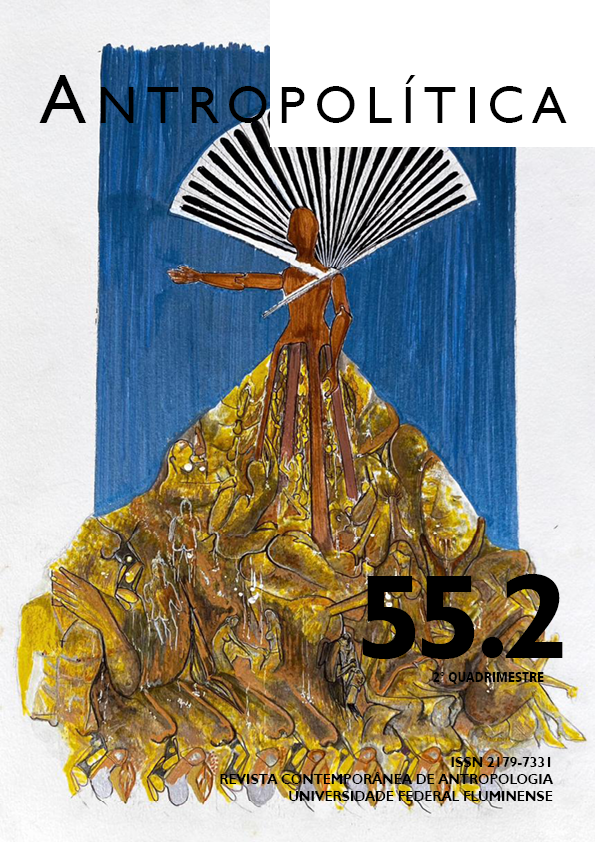Tiranias da intimidade: impasses em torno da revista íntima de travestis presas
DOI:
https://doi.org/10.22409/antropolitica.i.a55613Palavras-chave:
Travestis, Gênero, Prisões.Resumo
Este artigo explora os impasses que surgiram com o processo de elaboração e aplicação de novas resoluções para o atendimento à população LGBT no sistema penitenciário e socioeducativo de Minas Gerais. Essas resoluções estabeleceram, entre outras recomendações, que as revistas íntimas de travestis e transexuais deveriam ser realizadas exclusivamente por agentes de segurança mulheres. Em vista dessa nova normativa, analiso as controvérsias levantadas pelas agentes femininas, que se recusaram a realizar tais procedimentos de segurança e convocaram uma audiência pública para tratar do tema, alegando “violência de gênero” contra a categoria profissional. Assim, a partir de incursões etnográficas na ala LGBT de uma unidade prisional masculina e na audiência pública em questão, discuto a natureza complexa dos modos de regulação moral das expressões de gênero e sexualidade próprios das querelas em torno da gestão cotidiana de travestis presas.
Downloads
Downloads
Publicado
Edição
Secção
Licença
Direitos de Autor (c) 2023 Vanessa Sander

Este trabalho encontra-se publicado com a Licença Internacional Creative Commons Atribuição 4.0.
O conteúdo da revista Antropolítica, em sua totalidade, está licenciado sob uma Licença Creative Commons de atribuição CC-BY (http://creativecommons.org/licenses/by/4.0/deed.pt).
De acordo com a licença os seguintes direitos são concedidos:
- Compartilhar – copiar e redistribuir o material em qualquer suporte ou formato;
- Adaptar – remixar, transformar, e criar a partir do material para qualquer fim, mesmo que comercial;
- O licenciante não pode revogar estes direitos desde que você respeite os termos da licença.
De acordo com os termos seguintes:
- Atribuição – Você deve informar o crédito adequado, fornecer um link para a licença e indicar se alterações foram feitas. Você deve fazê-lo em qualquer maneira razoável, mas de modo algo que sugira que o licenciante o apoia ou aprova seu uso;
- Sem restrições adicionais — Você não pode aplicar termos jurídicos ou medidas de caráter tecnológico que restrinjam legalmente outros de fazerem algo que a licença permita.


